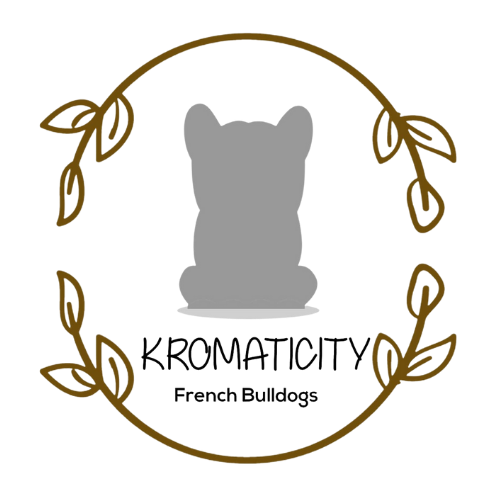Bringing a French Bulldog puppy into your home is no small decision. The breed’s adorable looks, playful demeanour, and loyal personality make them an appealing choice for many potential dog owners. However, ensuring your future companion’s health and happiness starts from the very first moment you lay eyes on them.
Understanding the Breed: French Bulldogs
A Brief History of French Bulldogs
Although named “French,” Bulldogs have roots tracing back to the English lace makers of Nottingham in the 1800s, who had a fondness for miniature Bulldogs. These petite companions eventually made their way to France with the craftsmen, where they found immense popularity and acquired their French moniker.
Characteristic Traits and Temperament
French Bulldogs, colloquially known as “Frenchies,” are best known for their bat-like ears, expressive eyes, and muscular, compact bodies. Temperament-wise, they are friendly, patient, and amiable, making them excellent companions for families and individuals alike.
Vital Signs of a Healthy French Bulldog Puppy
Clear Eyes and Nose
One of the first indicators of a healthy puppy is bright, clear eyes free from discharge. Similarly, the puppy’s nose should be wet but not excessively so, with no signs of discharge or breathing difficulty.
Clean Ears
A healthy Frenchie puppy should have clean, odor-free ears. Redness, itching, or an unpleasant smell can indicate infections or mite infestation.
Healthy Skin and Coat
A French Bulldog puppy’s coat should be sleek and shiny, devoid of any bald patches, rashes, or flaking. Their skin should also be smooth without any signs of irritation or unusual lumps.
Good Appetite and Digestion
Regular eating and digestion are vital signs of a healthy pup. Look for a puppy who is eager to eat, and has regular, firm bowel movements.
Physical Attributes: What Should You Look For
Size and Weight
French Bulldog puppies should be stout and heavy-boned, reflecting their muscular adult counterparts. Any sign of frailty or excessive thinness can be a sign of ill health.
Bone Structure
Their overall structure should be compact, symmetrical, and proportionate. Pay attention to their legs, tail, and spine, looking for any misalignments or deformities.
Breed-Specific Traits
Characteristics such as the French Bulldog’s signature “bat ears,” short face, and roly-poly figure should be evident, even in puppyhood.
Behavioural Aspects: Indicators of Good Health
Energy Level and Playfulness
A healthy puppy is typically playful and energetic. While French Bulldogs are not as hyperactive as some breeds, they should display bursts of enthusiasm and curiosity.
Interaction with Humans and Other Animals
Good social skills are a healthy sign. A well-adjusted French Bulldog puppy will be friendly towards humans and not display excessive fear or aggression towards other animals.
Sleep Patterns
While puppies sleep more than adult dogs, they should have a consistent sleep-wake cycle. Excessive lethargy could be a sign of an underlying health issue.
Genetic Health: Potential Issues and Red Flags
Understanding Hereditary Problems in French Bulldogs
French Bulldogs can be predisposed to certain genetic health issues, such as hip dysplasia and certain types of heart disease. Being aware of these potential problems is crucial.
The Importance of Genetic Testing
A reputable breeder should provide evidence of genetic testing for inherent health conditions. Such tests can give a good indication of a puppy’s long-term health.
Importance of Veterinary Checks
The Role of Regular Check-ups
Routine veterinary checks play a critical role in ensuring your French Bulldog puppy’s health. They can catch potential issues early and provide peace of mind about your puppy’s well-being.
Essential Puppy Vaccinations
Vaccinations are crucial in protecting your puppy from serious diseases. Make sure your breeder has started the puppy’s vaccination course, and follow through with the remaining ones once you bring the puppy home.
The Importance of a Good Breeder
Reputable Breeding Practices
A good breeder is committed to producing healthy, well-socialized puppies and will prioritize health testing and good breeding practices. They will provide a clean, nurturing environment for their dogs.
Questions to Ask Your Breeder
Asking the right questions can shed light on the breeder’s practices and the puppy’s health history. These could include questions about the parents’ health, the puppy’s diet, and any medical treatments they’ve had.
Feeding a French Bulldog Puppy: Nutrition Considerations
Proper nutrition is essential for your French Bulldog puppy’s growth and development. Choose a high-quality puppy food that’s appropriate for their age, size, and activity level. Monitor their weight, and consult with a veterinarian to ensure their dietary needs are met.
Conclusion
Choosing a healthy French Bulldog puppy is a careful balance of understanding the breed, assessing physical and behavioral attributes, and doing your homework on genetic health and breeder reputation. Taking these steps will not only ensure that you are bringing a healthy and happy puppy home, but also that they will grow into a loyal and loving companion for many years to come.




